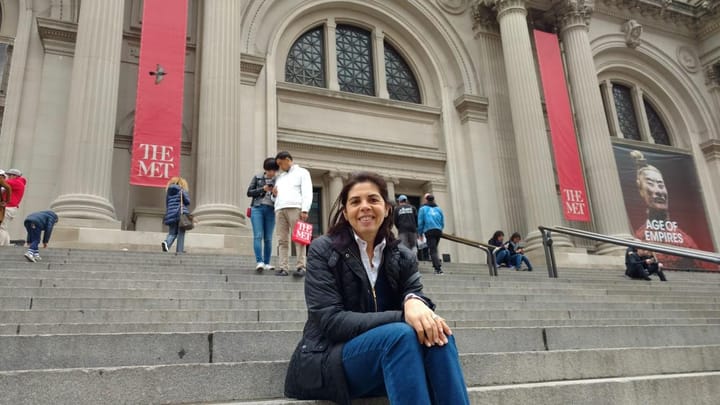Por Nelly Segura
La reciente propuesta de la diputada Brenda Ruíz Aguilar (MORENA), para crear un registro de fiestas tradicionales en los pueblos y barrios originarios de la Ciudad de México es un despropósito que pone en evidencia su completa ignorancia sobre la verdadera esencia de estas comunidades. El Congreso local exhortó a las 16 alcaldías y a la Secretaría de Cultura a iniciar este registro con el objetivo de declararlas patrimonio cultural inmaterial. Aunque suene como un paso positivo, la realidad es que esta propuesta no solo es limitada, sino que es otro intento burocrático que amenaza con ahogar las manifestaciones culturales más auténticas de la capital.
Ruíz Aguilar cree que con un registro formal se logrará preservar las festividades de los pueblos originarios, pero esta noción está profundamente equivocada. Las tradiciones no necesitan estar en una lista oficial para ser reales o válidas. De hecho, imponer un registro solo burocratiza y limita la espontaneidad de las celebraciones, ignorando que los pueblos y barrios originarios han mantenido sus festividades por siglos sin pedir permiso a nadie. ¿Acaso la diputada no entiende que la cultura vive en la cotidianidad, y no en un documento sellado?
El ejemplo de Santa Rosa Xochiac que menciona, donde asegura que los pueblos celebran "hasta cuatro tradiciones", es una prueba de su falta de comprensión. ¿Cómo puede creer que la riqueza cultural de un pueblo puede reducirse a un número fijo? Las comunidades originarias no viven sus tradiciones como un calendario cerrado, sino como parte integral de su vida, adaptándose a las circunstancias, ampliando y creando nuevas formas de celebración. Reducir estas expresiones a una lista numerada no solo es ignorante, es también peligroso.
Lo más preocupante es que esta no es la primera vez que se intenta un registro similar. La propia Secretaría de Pueblos y Barrios Originarios y Comunidades Indígenas Residentes (SEPI), bajo la dirección de Nelly Juárez, ha reconocido que el registro impuesto en su administración no ha funcionado. La SEPI argumenta que "se tienen que saber quiénes son los pueblos para apoyarlos", pero esta declaración es absurda. Los pueblos originarios han estado aquí mucho antes de la llegada de los españoles. No necesitan que el gobierno los reconozca o les dé una "validación" burocrática para existir.
Esta misma lógica absurda parece permear la propuesta de la diputada Ruíz. ¿De qué sirve un registro que no funciona? Lo que deberían cuestionarse tanto la diputada como la SEPI es por qué creen que las tradiciones y la cultura pueden controlarse desde una oficina gubernamental. Los pueblos ya saben quiénes son y llevan décadas, incluso siglos, luchando por mantener sus costumbres a pesar de la urbanización y la indiferencia estatal.
Resulta inevitable sospechar que esta propuesta es más que un simple "intento de protección". Si una fiesta no está registrada, ¿significa que no existe? ¿Se le ofrecerá presupuesto o permisos a los que sí estén registrados y con ello generar divisiones internas? Bajo este disfraz de protección cultural, parece haber un plan para controlar y limitar las festividades de los pueblos, reduciéndolas a un número manejable para el Estado. Si este registro se vuelve obligatorio, las tradiciones corren el riesgo de desaparecer o transformarse en eventos meramente simbólicos, estandarizados y privados de su significado genuino.
Además, Ruíz Aguilar omite el factor más importante: la consulta a las comunidades. Es absurdo proponer medidas que afectan directamente a los pueblos originarios sin consultarlos primero. Las comunidades no necesitan que nadie les diga cuántas fiestas pueden celebrar ni cómo deben organizarse. Lo que sí necesitan es que se les respete como guardianes de sus propias costumbres. Pero este detalle parece escapar por completo a la diputada, que prefiere hablar desde la ignorancia y no desde el entendimiento o el diálogo.
Las tradiciones no deberían depender de la benevolencia estatal para seguir existiendo. Reducir las expresiones culturales a un trámite burocrático es quitarles su autenticidad y convertirlas en meros espectáculos aprobados por el Estado.
Los pueblos originarios llevan siglos resistiendo, y lo último que necesitan es que alguien que no entiende sus realidades les diga cómo deben preservar su cultura. Este tipo de medidas no protegen nada, solo burocratizan y limitan, mostrando el profundo desconocimiento sobre el valor y la naturaleza de las tradiciones que pretende proteger.

Las opiniones expresadas son responsabilidad de sus autoras y son absolutamente independientes a la postura y línea editorial de Opinión 51.






Comments ()